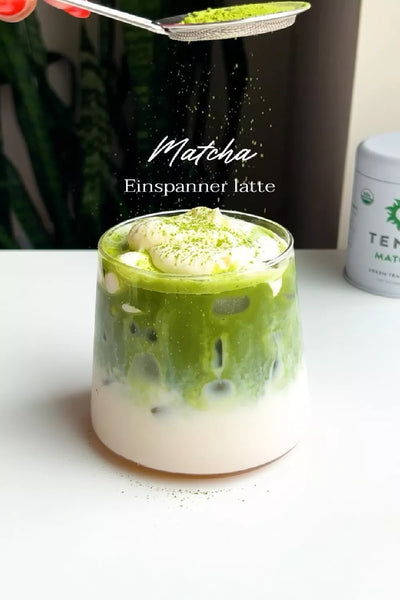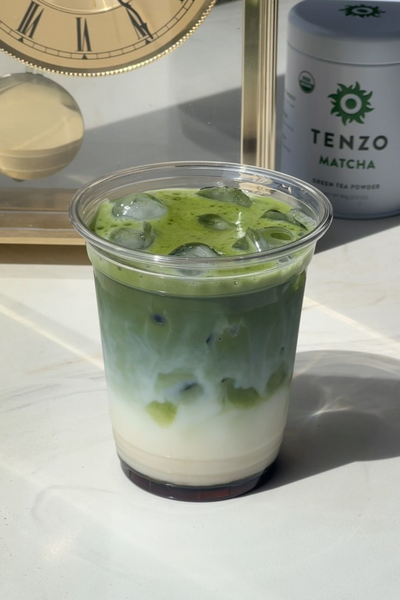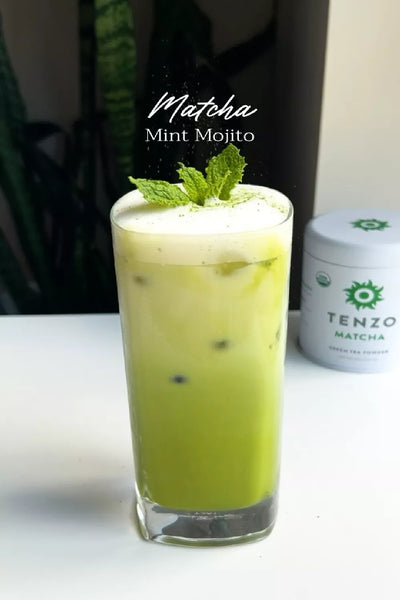Common Side Effects of Matcha Tea


Common Side Effects of Matcha Tea
Posted on June 01, 2021 | by Steve O'Dell
Matcha tea is an excellent alternative to caffeinated drinks like coffee if you’re looking for a great boost of energy without the long or short-term side effects.
Not only will matcha help you stay focused and energized throughout the course of the day, but it also comes with extra benefits like immune-boosting capability, oral health care support, and relaxing properties that can be helpful for managing the effects of stress and overall emotional wellness.
Matcha tea was first prepared over one thousand years ago and has since evolved into many new and unique recipes and combinations, but the lasting health benefits have always remained.
Unlike traditional teas, which are steeped in preparation, matcha tea is made by grinding young tea leaves into a fine powder and then mixing them into hot water. This ensures that the full effects and nutritional value of the leaves remain and aren’t lost during preparation.
Of course, like all ingredients, there are a few common side effects that come along with drinking matcha tea regularly.
Here at Tenzo Tea, we’re dedicated to providing you with the tools and information you need to make a perfect cup of matcha every time, so check out our guide to matcha tea’s side effects and benefits to get started.
Benefits of Matcha Tea
We often reach for a cup of coffee or another type of energy drink before considering matcha as an alternative, but the truth is that there are many reasons you’ll want to think about making the switch. Here are just a few of the benefits of enjoying a cup of matcha tea today.
It Provides Energy
Matcha tea is made of young green tea leaves from the camellia Sinensis plant. While green tea is not the most caffeinated type of tea, the preparation process for matcha means it retains more of those energizing and boosting ingredients that can help to keep you focused and engaged all day long.
In fact, matcha has about 70 milligrams of caffeine per serving, which is around the starting amount of caffeine in a cup of coffee.
There Are No Crashes
Of course, every ingredient will have some impact or side effect, but when you enjoy matcha over a cup of coffee or another type of energy drink, you’ll have a lot fewer effects to worry about.
Matcha tea doesn’t cause the same caffeine crash as coffee, and you’ll notice fewer jitters, headaches, and stomach irritation.
It Boosts Your Immunity
Matcha is chock full of antioxidants and nutrients, which means it’s great for the immune system. It can help to keep your body safe and protect you from germs, so you continue to feel strong and energized all day long.
It’s Good for Teeth
Coffee is acidic, which means it can actually contribute to the growth of bacteria that causes bad breath and irritation of the gums. With all those nutrients and antioxidants, matcha works to fight bacteria and infections and keep your teeth and gums feeling fresh, healthy, and clean.
It Has Long-Term Benefits
Matcha improves your body’s overall health and wellness, and not just in the short term. When you enjoy matcha regularly, you may see an improvement in your cholesterol levels and your heart health that can go as far as to reduce your likelihood of experiencing a stroke.
Matcha is also an effective anti-inflammatory, which means it can be incredibly beneficial for managing the effects of conditions like arthritis and carpal tunnel and for helping you to get relief from discomfort.
It Calms and Relaxes
Matcha supports more than just physical wellness. Matcha is known for its relaxing and calming benefits, as well. In fact, even though it has caffeine, matcha is even recommended for enjoyment before bed, because it can be so effective as reducing your stress and helping you to feel calm and relaxed.
It Tastes Great
There are so many reasons that you’ll want to consider adding matcha to your diet and lifestyle, but one of the most important is that it’s versatile and delicious. Matcha is rich with an earthy, fresh taste that mixes well with many different types of ingredients and recipes.
If you’re looking for a breakfast dish beyond your morning tea, smoothies and oatmeal are excellent choices. Matcha powder can also be used in desserts like brownies, ice cream, and fruit tarts for a sweet, fresh flavor and plenty of health benefits.
Common Side Effects of Matcha Tea
As with coffee, tea, and other drinks and ingredients, however, matcha does have a few side effects that you’ll want to keep in mind when determining if it’s a good option for your diet and lifestyle. Remember that it’s always important to consume in moderation and to reduce your consumption if you notice side effects or uncomfortable reactions. While there aren’t many side effects to consuming matcha that you’ll want to consider, here are just a few.
It Can Be a Diuretic
Matcha is prepared from a leafy green, which is rich in fiber and known for supporting healthy digestion. In smaller quantities, it can be helpful for reducing inflammation and promoting healthy digestion, but when consumed in excess or alongside other ingredients that contribute to digestion, it can behave as a diuretic and require more regular use of the facilities.
If you find you already wake often in the night to use the restroom, you’ll probably want to skip that late night matcha.
It Can Keep You Up
Everyone reacts to caffeine differently. If you can easily put back an espresso after dinner and have no problem falling asleep, a late-in-the-day matcha can fit right into your diet and lifestyle.
Before you start drinking matcha in the evening or night, however, it’s important to consider your sensitivity to caffeine. The effects of matcha can last up to ten hours, so if you find you’re struggling to fall asleep, push your last matcha of the day up a little earlier.
It Can Cause Stomach Aches
While matcha is far less likely to cause severe stomach aches than drinks like coffee, it’s still best to consume your matcha in moderation. Because it is a type of green tea, which is rich in fiber, it can irritate your stomach when taken in excess.
Nausea and heartburn may be associated with excess consumption of matcha, as well. Always listen to your body’s needs and stop drinking matcha tea if you’re noticing that it’s causing stomach discomfort or other types of irritation.
It Can Cause Headaches
Matcha has about 70 mg of caffeine per serving which is at the low end of caffeine content for a cup of coffee. Many of the benefits of drinking matcha are derived from this subtler, gentler caffeine content, but if you have a sensitivity to caffeine, if you consume too much matcha, or if you’re not properly hydrated, you may notice that matcha is causing headaches.
Add more water to your diet and pause matcha use until you have spoken to your medical team about the root cause.
Conclusion
While there are a few common side effects that may be associated with drinking matcha, like the occasional headache or increased digestion, the important thing to remember is that there are a great many benefits to matcha enjoyment, as well.
Matcha provides lasting, supportive energy without the caffeine crash associated with coffee, support for your immune system and overall health and wellness. It is even known for its calming and relaxing benefits, which make it a great option for individuals under a lot of pressure or those who often experience stress.
Matcha is a versatile and delicious drink and matcha powder can be mixed into many different types of recipes and combinations to get a unique and wonderful treat every time.
Whether you’re a matcha professional or you’re just taking off on your matcha journey, Tenzo Tea is here to help. Not only do we carry tea kits with all the tools you need to get started, but we’re also sharing everything we know about this healthy and supportive tea option—the good and the not so good.
While it’s important to be aware of side effects in advance, the benefits of drinking matcha far outweigh the drawbacks, and you’ll enjoy all the good that matcha has to offer when you try out the high-quality ingredients available here at Tenzo Tea today.
Sources:
Caffeine Content for Coffee, Tea, Soda, and More | Mayo Clinic
Relaxation Techniques: Breath Control Helps Quell Errant Stress Response | Harvard Health Publishing (Harvard Medical School)
Why Americans Can’t Sleep | Consumer Reports







